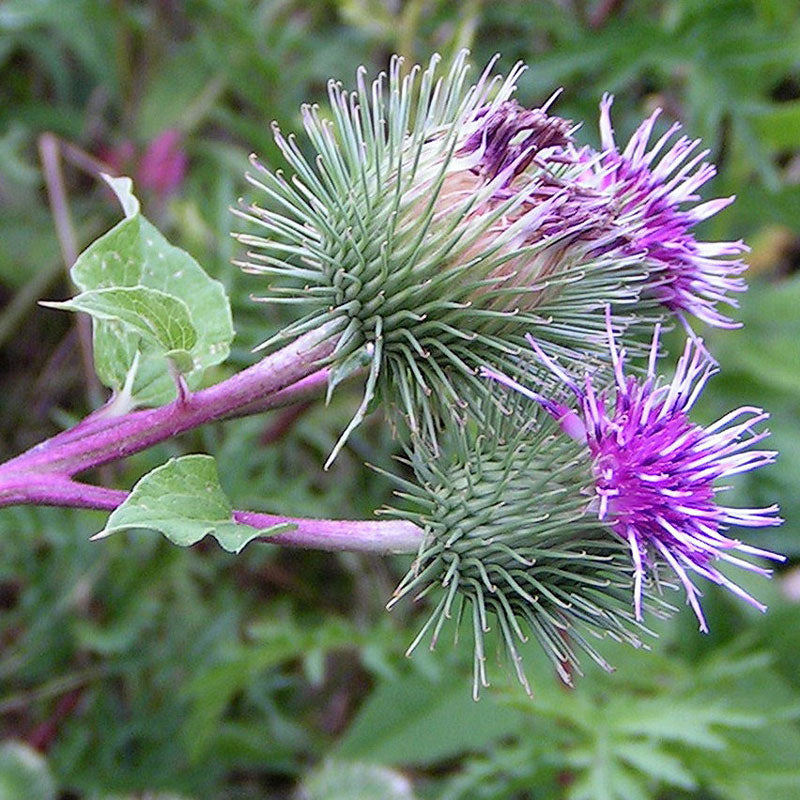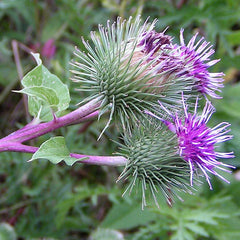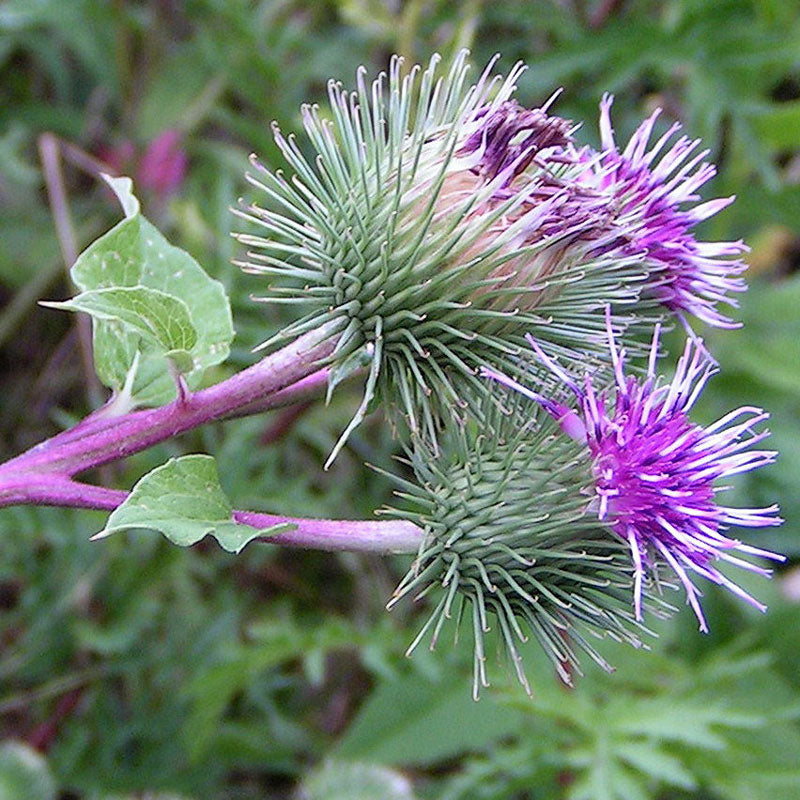

Burdock Root (Arctium lappa)
- $14.00 CAD
- $14.00 CAD
- Unit price
- per
100g, 250g
Couldn't load pickup availability
Parts used Root
Properties
Alterative, antineoplastic, antirheumatic, blood purifier, demulcent, diaphoretic, diuretic, vulnerary
Primary nutrients
Carbohydrates, copper, iodine, iron, PABA, protein, silicon, sulfur, vitamins A, B-complex, C, E and P, zinc
Burdock was once widely known as a cleansing agent for both the blood and bowels, in fact, it is still known as one of the best blood purifiers of all herbs. Many Native American tribes used burdock for skin ailments and a wide variety of other diseases.
Burdock is recommended during various female complaints because of its ability to aid in hormone balance and to prevent water retention. It is also used to promote kidney function. It contains high amounts of insulin, a form of starch, which is responsible for some of its healing properties and carbohydrate metabolism
Modern scientific research has uncovered diuretic properties and tumor inhibitors in burdock in studies done on animals. Burdock may also inhibit mutations in cells that are exposed to mutation-causing chemicals that can lead to cancer. It has been found to contain antibiotic and antifungal properties.
It is beneficial for skin disorders, kidney problems, arthritis and gout. Burdock root has been used to treat breast cancer, glands, intestines, knees, lips, liver, sinus, stomach, tongue and uterus.
Primary Applications
Acne
Allergies/hay fever
Arthritis
Blood impurities
Cancer
Chicken pox
Colds
Constipation
Edema
Fevers
Hemorrhoids
Hypoglycemia
Kidney problems
Liver disorders
Lung disorders
Measles
Mucus, excessive
Poison ivy/oak
Rheumatism
Skin disorders
Tonsillitis
Tumors
Secondary Applications
Asthma
Back pain, lower
Boils
Bronchitis
Canker sores
Coughs
Cystitis
Dandruff
Gallbladder problems
Inflammation
Pneumonia
100g, 250g
RELATED PRODUCTS
- Choosing a selection results in a full page refresh.



